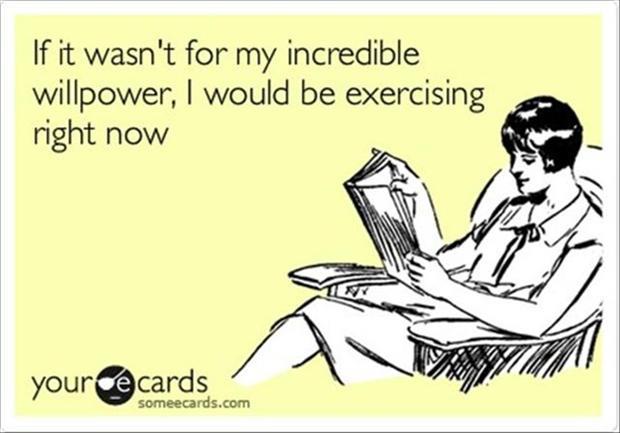So, it turns out that one of the best things you can do for your next fitness goal is to take some downtime and try something completely different like mess around with different types of sports, keep workouts short or even try a different activity like hiking, rollerblading with a friend or skiing. All coaches know and encourage this. Cyclists, soccer and football players take a serious break after every season to let the mind and body recover. But you don’t have to be a pro to need a break. Everyone benefits from easing up now and then, setting aside out gym and sports routines precisely so that we can return stronger than ever.
Your body has only a certain bank account of adaptive energy. It will keep responding to training for only a certain period of time before that bank account goes into the red. What we really do in hard workouts is apply a stimulus that elevates our heart rate, breaks down muscle fibers, causes the adrenal glands to secrete the stress hormones adrenaline and cortisol and generally tells out body that the status quo wont cut it anymore. The “getting fitter” part — the body’s response to that stimulus — comes afterwards. While you eat and rest, the body gets to work repairing tissue damage, strengthening the heart and other muscles, restoring depleted fuel reserves and getting better at transporting oxygen throughout the body, making itself a little more efficient and stronger than before. Then we go out and do it again. 
By training carefully and modestly – stressing the body to stimulate change, and then letting it recover and adapt- we stack up these little adaptions one on top of the other until we find ourselves fit enough to run a marathon, lift a heavier weight or play the best footy game of our adult lives. The problem is that we usually don’t completely recover between workouts. Some of the fatigue stays with us, gradually accumulating during long periods of intense training. Even as we get fitter and fitter, the mechanisms of recovery and adaption begin faltering, putting us at risk for chronic exhaustion, difficulty sleeping and loss of motivation.
The secret to optimal performance, therefore, is to take a break long enough to let all signs of fatigue disappear, it’s essentially a recharge point for those adaptive mechanisms, but not long enough to lose all of your current fitness. As for how long that break should be, it depends on how hard you’ve been working out, but one month is PLENTY for most nonprofessionals.
Taking a long break doesn’t mean getting overly friendly with the couch – you don’t wait to fall completely out of shape, and you certainly don’t want to add KGs that will be hard to shed later. But steer clear of anything remotely resembling a training plan, don’t consider lung- busting interval workouts, and most of all stay away from your primary training/ sport. Instead look for other sports/ active training that either build up some attribute useful in your main training or keep you in similar shape but with a different mental focus. Taking away that thing you love can really reinforce how much you love it, helping to bring back that motivation, otherwise, training feels like a job!

